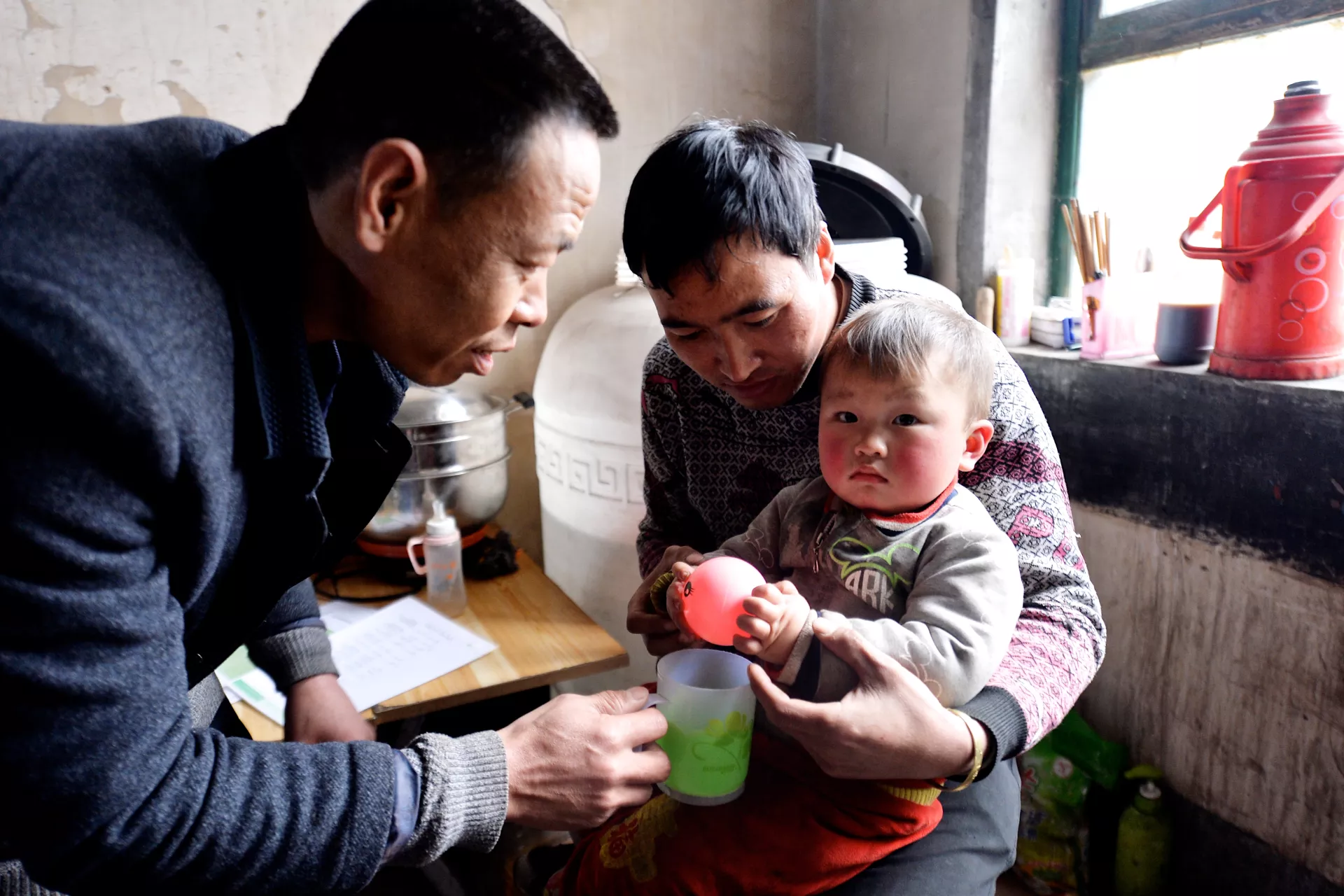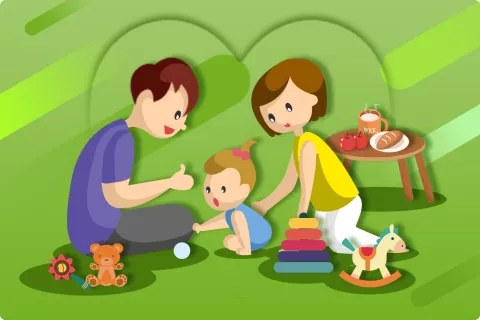3 ways parents can improve their babies' brain development
Harvard University's Dr. Jack Shonkoff explains how playing with your baby is the most important thing you can do.

- Available in:
- 中文
- English
Did you know that the most important interaction you can have with your child is through play? Building your baby’s brain sounds daunting, but don’t be intimidated. Parenting is much more of an art than a science.
The experiences young children have and their relationships with key caretakers literally shape the development of their brain. And this early foundation can affect all the learning and behavior and physical and mental health that follows through a lifetime. It’s impossible to overestimate the importance of the early years.
Get to know your baby
The most important thing that any parent can do to support the development, and particularly the brain development of a young child, is to be able to read your child’s cues. Through this, you can engage in what we call “serve and return” interaction, a form of responsive parenting.
A baby serves a smile, a coo, a babble, a gesture, and the parent or caregiver returns a response that is connecting to what the baby just did. Baby makes a sound; you make the same sound back. A baby points to something; you look at that and point at yourself. It goes both ways. The baby can start it. The parent can start it.
For very young children, all of the important learning takes place within the context of play. Play is exploration. Play is trying things. Play is figuring out that when you do one thing, something else happens. Play is trying to develop a sense of mastery of the world. A lot of that is done by providing an environment that is safe and provides opportunities for learning.
Have fun with your baby
Play can occur when you are feeding a child, when you are changing the child’s clothes, when you are bathing a child. These are all opportunities for playful interaction and learning between adults and children. Make the idea of ‘serve and return’ something that is easy, friendly and relaxing, not a chore or something overly technical or rigid.
When you smile back at your baby, don’t stop there, use that as a window to start playing. Remember, you’re helping to build brain circuits in these moments!
Serve and return is not necessarily something that works the first time you try it. But the more you play it, the easier it becomes.
Boost your baby’s brains with games
In infancy with very young babies, it’s all about interaction, bringing in visuals, sounds, looking your baby in the eye, making that personal connection, being sensitive to your baby’s feelings.
The best games build a sense of emotional safety that allows growth. For example, when you cover your face with a cloth and play peekaboo, saying “Where’s baby, oh here’s baby,” your baby is learning. Why is the baby still laughing every single time you do this? First, it’s the personal interaction; it’s very rewarding. But second, the baby is mastering the concept of things disappearing and coming back and knowing that they still exist.
If a baby keeps wanting to do this, there’s a reason for that. And the reason is that the baby’s brain is saying – “I am mastering this. I am learning a lot from this. I am enjoying the learning experience.” Ask yourself: what does my baby enjoy doing? And then ask yourself, why do you think the baby enjoys doing that? And the answer always is ‘because it’s helping to build the baby’s brain.’"
Jack P. Shonkoff, M.D., is the Julius B. Richmond FAMRI Professor of Child Health and Development at the Harvard T.H. Chan School of Public Health and the Harvard Graduate School of Education; Professor of Pediatrics at Harvard Medical School and Boston Children’s Hospital; and Founding Director of the university-wide Center on the Developing Child at Harvard University.





